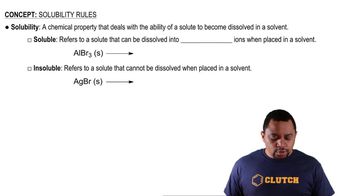How many hydrogen atoms are needed to complete the hydrocarbon formulas for the following carbon backbones?
b. <IMAGE>
 Verified step by step guidance
Verified step by step guidance Verified video answer for a similar problem:
Verified video answer for a similar problem:



 2:26m
2:26mMaster Introduction to Organic Chemistry Concept 1 with a bite sized video explanation from Jules
Start learning